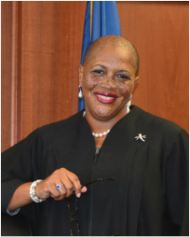Black people are strongly underrepresented in Silicon Valley. It has long been speculated that the tech industry is mostly white and male. According to Cambio, the result is that the products developed by companies like Facebook and Apple don’t always fit Black people.
Facial recognition is one of the main ways the outcome is demonstrated as “almost always it can’t recognize Black people,” said Erica Baker, an engineer at workplace messaging startup Slack. “The cause of that is the people who are building these products are white people, and they’re testing it on themselves. They don’t think about it.”
Because these white, male engineers don’t consider how features like a broad nose and full lips can change how a consumer interacts with a product, it keeps Black consumers from fully enjoying features. According to Forbes, companies have recognized the need to look at the racial biases and have begun initiatives to be more inclusive when it comes to hiring minorities and women.
Pinterest, a virtual pinboard app, announced on their blog last summer that they’re looking to increase hiring rates for full-time female engineers to 30 percent and minorities in the same roles by 8 percent. Earlier this year they hired their first-ever head of diversity, Candice Morgan — a Black woman – according to The Huffington Post.
Since some strides have been made by companies to increase diversity, it makes sense for more Blacks to be graduating with degrees in technology. According to U.S. News, historically black colleges and universities have been giving incentives to students studying science, technology, engineering and math. HBCUs like Morgan State in Baltimore, and the University of Maryland, have programs that offer research opportunities and apprenticeships. Twenty-seven percent of Blacks who have bachelor’s degrees in the field helm from these schools, which give them the edge to help shut down racial bias in tech companies.



